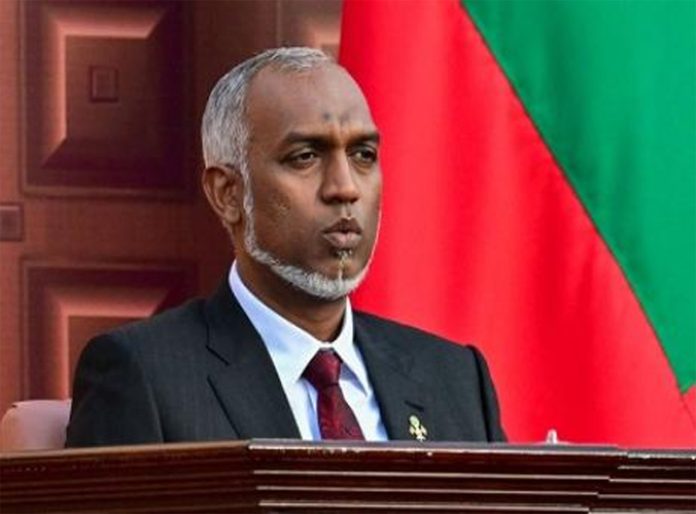BEIJING, Jan 5 : The new Maldivian President Mohamed Muizzu will visit China for the first time next week after falling out with his mentor Abdullah Yameen who steered Male close to Beijing, setting off speculation about the likely contours of his government’s foreign policy in the next five years.
Muizzu and First Lady Sajidha Mohamed will visit China from January 8 to 12 at the invitation of President Xi Jinping, Chinese Foreign Ministry spokesperson Hua Chunying announced on Friday.
Muizzu, who is seen as a pro-China politician, took oath as the eighth President of the Maldives after defeating the India-friendly incumbent Ibrahim Mohamed Solih in the presidential runoff held in September.
Muizzu’s predecessors in the recent past visited India first, considering the wide-ranging bilateral ties and the Maldives’ proximity to India, followed by China which has expanded its influence in the island nation by investing in major infrastructure projects there.
Surprisingly Muizzu chose Turkiye as his first destination for a foreign visit soon after his election followed by the UAE where he met Prime Minister Narendra Modi on the sidelines of the United Nations Framework Convention on Climate Change (COP28) on December 1 and discussed the progress of the wide-ranging bilateral ties.
During the meeting, both leaders agreed to set up a core group to discuss the multi-dimensional relations and further deepen ties.
The meeting took place after Muizzu requested New Delhi to withdraw 77 Indian military personnel from the Maldives and decided to review more than 100 bilateral agreements between the two countries.
Earlier, Muizzu’s government announced its plans to drop a hydrographic survey agreement with India.
Muizzu will be the second-highest politician to visit China in recent weeks.
The new Maldives Vice President Hussain Mohamed Latheef last month visited China, his first visit abroad, and took part in the China-sponsored China-Indian Ocean Region Forum on Development Cooperation, (CIORF) in Kunming.
During the meeting, he said cooperation in the Indian Ocean must include all countries in the region and avoid factionalism to bring about development among the ocean communities in the area.
Significantly, while praising Chinese infrastructure projects, Latheef made no mention of China’s Belt and Road Initiative (BRI) under which most of the Maldives’ infrastructure projects were built.
The BRI is an ambitious plan initiated by President Xi in 2013 to develop new trade routes connecting China with the rest of the world via land and maritime networks to improve regional integration, increase trade and stimulate economic growth.
Observers say Muizzu’s foreign policy is still evolving as the Maldives domestic political situation has undergone a major change after his election in November last year.
Soon after his election Muizzu fell out with former pro-China President Yameen, regarded as his mentor, and opted to pursue his own foreign and domestic policy.
Under Yameen’s Presidency, China carried out major infra projects amid allegations of debt traps by some influential politicians of the Maldives.
Angry with Muizzu, Yameen, who is currently serving a prison sentence for corruption, quit the ruling Progressive Party of Maldives (PPM) and formed his own political party called People’s National Front (PNC) from jail to oppose Muizzu.
Also, the island’s Parliament is currently dominated by the Maldivian Democratic Party (MDP) headed by Solih.
The Maldives is India’s key maritime neighbour in the Indian Ocean Region (IOR) and occupies a special place in its initiatives like SAGAR’ (Security and Growth for All in the Region) and the Neighbourhood First Policy’ of the Modi government.
The Maldives’ proximity to India, barely 70 nautical miles from the island of Minicoy in Lakshadweep and 300 nautical miles from the mainland’s western coast, and its location at the hub of commercial sea lanes running through the Indian Ocean gives it significant strategic importance. (PTI)


